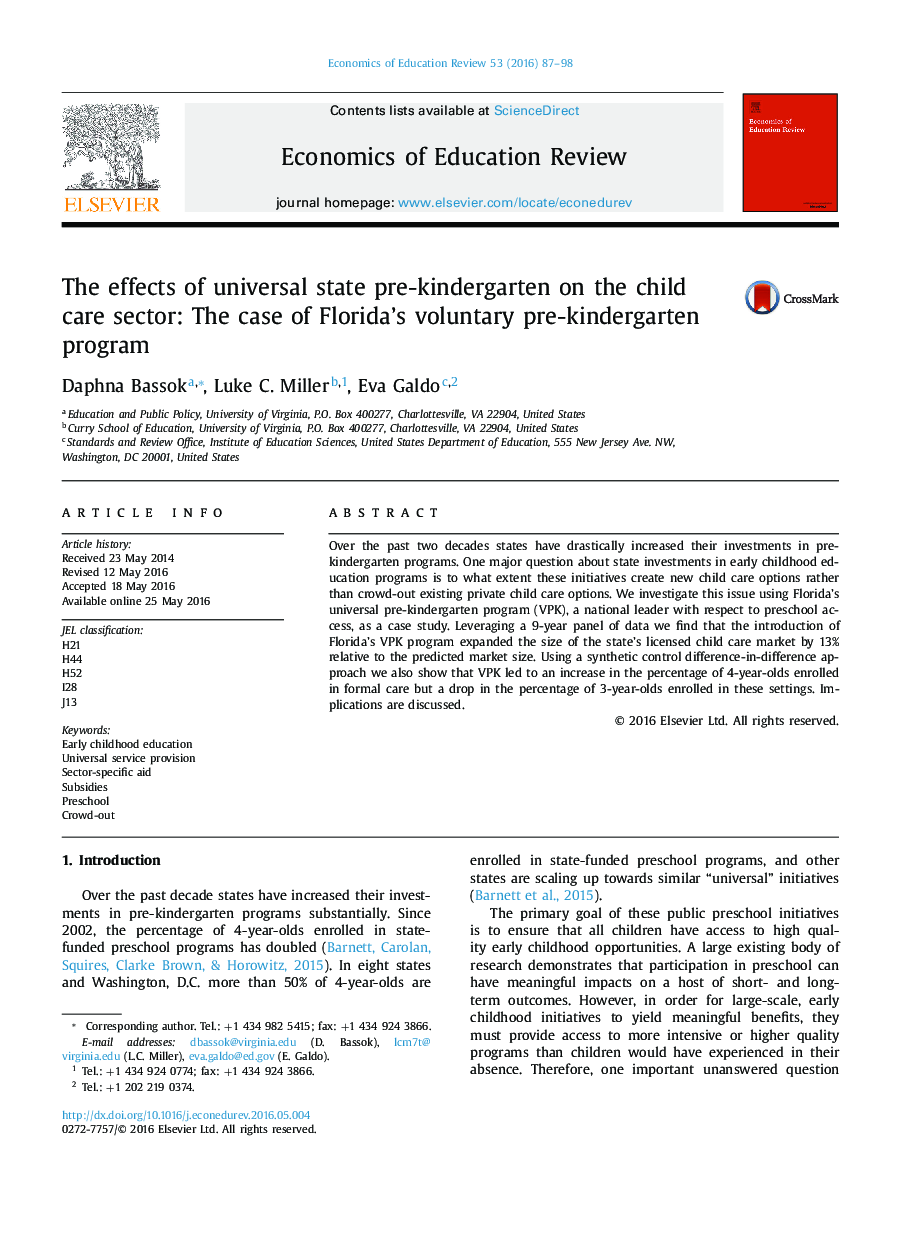| Article ID | Journal | Published Year | Pages | File Type |
|---|---|---|---|---|
| 354273 | Economics of Education Review | 2016 | 12 Pages |
•Florida is a national leader with respect to state preschool access for 4-year-olds.•Florida's preschool program (VPK) increased child care availability by 13%.•VPK increased preschool participation by 4-year-olds.•The program led to drops in preschool participation among 3-year-olds.
Over the past two decades states have drastically increased their investments in pre-kindergarten programs. One major question about state investments in early childhood education programs is to what extent these initiatives create new child care options rather than crowd-out existing private child care options. We investigate this issue using Florida's universal pre-kindergarten program (VPK), a national leader with respect to preschool access, as a case study. Leveraging a 9-year panel of data we find that the introduction of Florida's VPK program expanded the size of the state's licensed child care market by 13% relative to the predicted market size. Using a synthetic control difference-in-difference approach we also show that VPK led to an increase in the percentage of 4-year-olds enrolled in formal care but a drop in the percentage of 3-year-olds enrolled in these settings. Implications are discussed.
